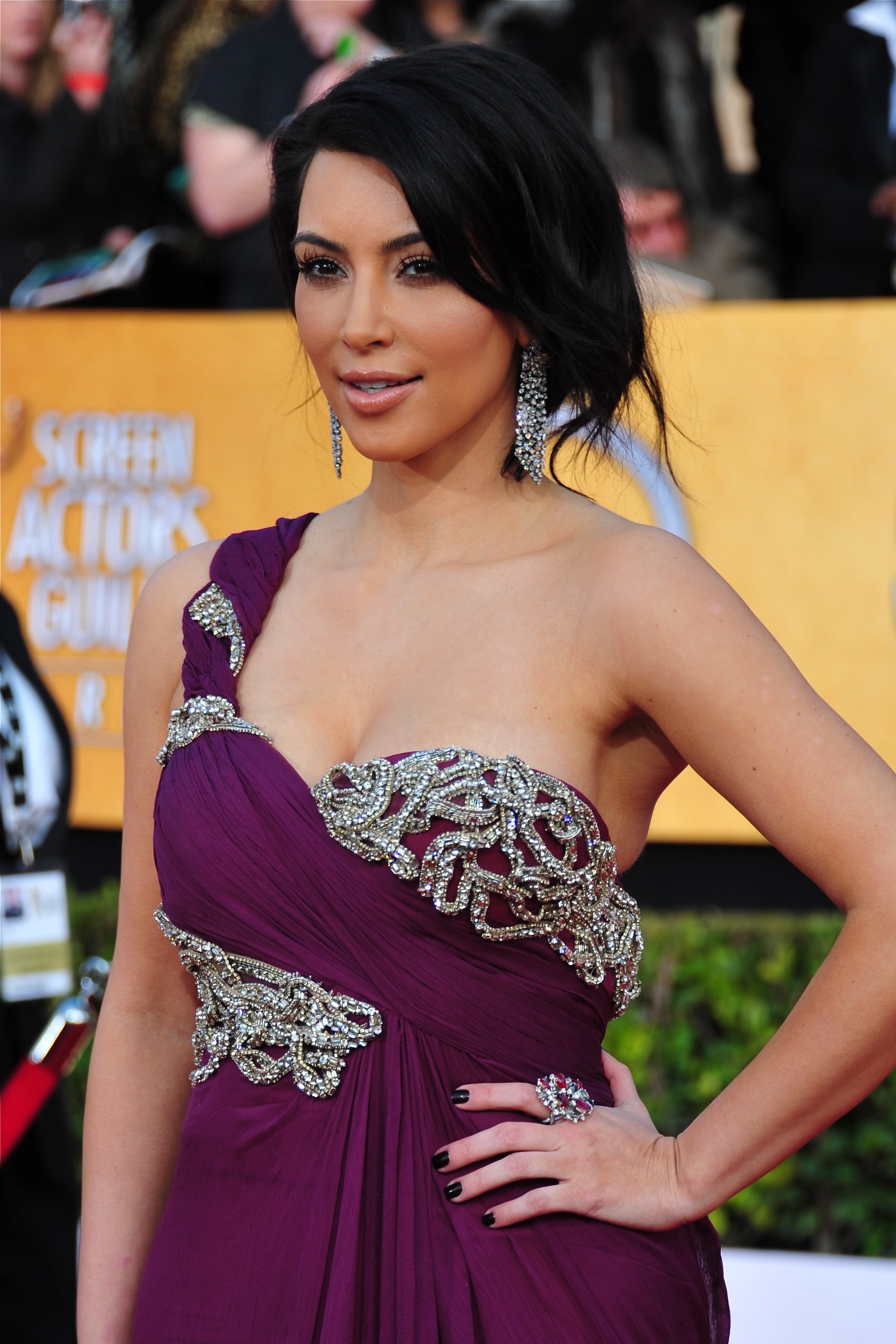Is a selfie empowering? Or objectifying?
According to the undisputed queen of selfies, Kim Kardashian, it can be both.
“Yes,” Kardashian said when asked at an appearance in San Francisco this week whether her selfies objectify her. “I’m proud of them. There’s power in that. There’s a control. Even if I’m objectifying myself, I’m OK with that.”
Most people probably don’t ponder this question when they post photos of themselves on Instagram, Twitter or other social platforms. But for women grappling with self-esteem or body-image issues — or fighting against sexism — snapping a selfie is not so simple.
“Every selfie you post online cannot be taken back and so you need to make sure it’s perfect and there is a lot of pressure to nail a selfie,” said Jenesis Parado, 24, an aspiring model in Chicago.
“You definitely want it to be sexy because, let’s be real, sex sells,” added Parado, who feels that sharing selfies helps her followers feel more connected to her. “So if you want an audience you need to accentuate your assets.”
Kardashian, who has collected many of her selfies into a new book, “Selfish,” knows a few things about accentuating her assets. The polarizing reality TV star has 37 million followers on Instagram, another 33 million on Twitter and a reputation for provocative photos that rocket around the Internet.
But for women who aren’t celebrities, selfies can have a negative effect on self-esteem, some experts say.
Dr. Edward Farrior, former president of the American Academy of Facial Plastic and Reconstructive Surgery, believes selfies can make people look at their appearance more critically.
“With the growth of social media, there is no question that people see themselves more often in a bad light,” he said. “Social media has made some people more self-conscious.”
Susan K. Whitbourne, a professor of psychological and brain sciences at UMass Amherst, believes there are pitfalls to younger people posting selfies.
“It’s theoretically fine when Kim Kardashian does it but it’s not OK when a 12-year-old does it, because young girls will imitate what celebrities do and start to become more critical of their body,” she said.
Whitbourne said she’s not against social media, but she believes women who post pictures of themselves can become too self-critical knowing that they will be viewed, and judged, by others.
“There is such a danger there, such as eating disorders, depression, anxiety and low self-esteem,” she said.
A study published in April in Psychology of Women Quarterly found that young women who spend a lot of time reading celebrity magazines or surfing Facebook are more likely to compare their appearance to others.
Dove and Twitter released a study in February that found more than 5 million negative tweets posted about women’s bodies last year — most of them things women were saying about themselves.
Megan Finn Connelly, 24, a New Jersey-based fitness trainer, says she used to be overweight and compare herself constantly to other people on social media.
“You see these girls and they have these crazy bodies and most of them have had a lot of plastic surgery and it’s clear what they post isn’t real,” she said. “I had to unfollow a lot of people because it was making me angry.”
Then there is the touchy issue of social media “likes.” A recent survey by InStyle magazine found that 89% of women said getting a “like” on Facebook or Instagram felt like a compliment, while 82% said that getting compliments on social media improved their self-esteem.
Social-media affirmation can be a double-edged sword, however. What happens when you post a selfie and don’t get many likes? Research has found that can make people with low self-esteem feel worse about themselves.
Valerie Kipnis, a 21-year-old NYU student, believes selfies can create pressure when people seek self-approval. But she tries to take a healthy approach to it by only posting funny selfies, without makeup.
“I think that it’s a really beautiful thing that anyone, anywhere can post a selfie and they don’t have to be a celebrity,” Kipnis said. “Selfies are going to reset the standards of beauty and how people view themselves.”




